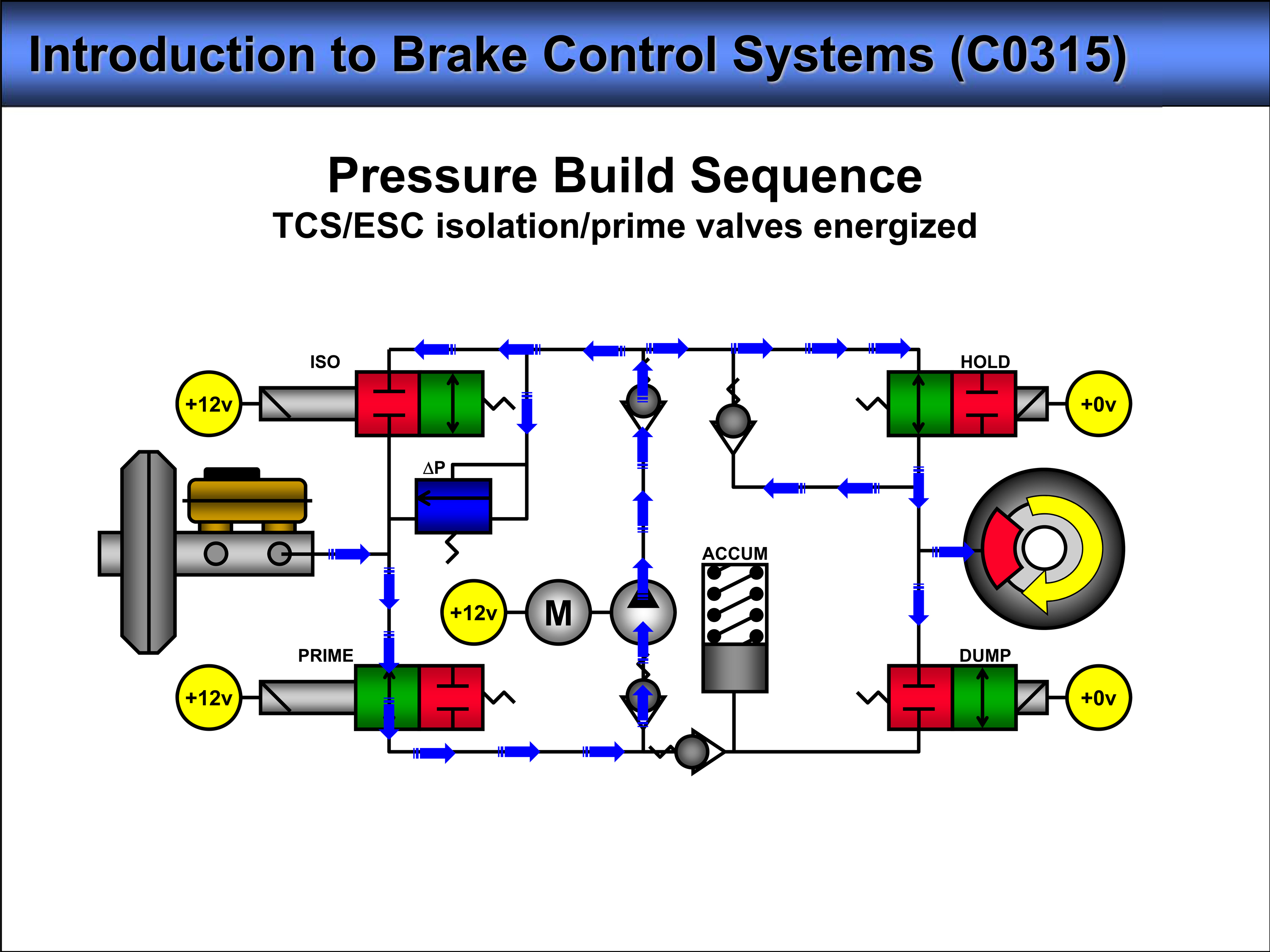
Once reserved for high-end luxury vehicles, electronic brake control systems are now required standard equipment on even the most inexpensive cars and trucks. Today, every new vehicle benefits from the optimized braking, enhanced acceleration, and improved stability that these systems provide. This comprehensive seminar introduces participants to the system-level design considerations, vehicle interface requirements, and inevitable performance compromises that must be addressed when implementing these technologies.
The seminar begins by defining the tire-road interface and analyzing fundamental vehicle dynamics. Following an in-depth study of system electronics, hydraulic hardware, and sensor requirements, the participants learn about the control strategies employed by anti-lock brakes (ABS), dynamic rear proportioning (DRP), traction control (TCS), and electronic stability control (ESC) with a heavy emphasis placed on the resulting vehicle dynamics.
The seminar concludes with a study of unique applications, a look forward to advanced brake control system integration, and an overview of Federal Motor Vehicle Safety Standard 126. Over 500 pages of detailed course notes and illustrations are provided for on-the-job reference.
This course has been approved by the Accreditation Commission for Traffic Accident Reconstruction (ACTAR) for 13 Continuing Education Units (CEUs).
Learning Objectives
By attending this seminar, you will be able to:
- Analyze brake system design parameters and their vehicle performance effects
- Evaluate the compromises between stability, steerability, and stopping distance
- Identify the discrete mechanical components required for ABS
- Specify fundamental ABS performance attributes
- Calculate dynamic brake balance and explain the benefits of DRP
- Reconcile TCS performance expectations vs. method of implementation
- Define ESC performance metrics and physical limitations
- Assess features such as adaptive cruise control and brake assist
- Interpret federal requirements for the performance of ESC
Who Should Attend
This course has been developed for engineers involved in all fields related to the design or development of vehicle dynamics, vehicle braking systems, powertrain systems, chassis systems, or suspension systems. In addition, this course can be valuable to those with component design responsibilities in brake, chassis, suspension, or tire disciplines.
Individuals new to the field of brake control systems will benefit most from the material; this introductory course is not intended for individuals with significant experience with brake control systems. In addition, please note that because of proprietary considerations this class does not provide details of algorithm design, algorithm performance, or algorithm application. Instead, the course places strong emphasis on vehicle dynamic responses.
Prerequisites
An undergraduate engineering degree or a strong technical background is highly recommended. A basic knowledge of college algebra, college physics, and a familiarity with vehicle brake and suspension systems is required.